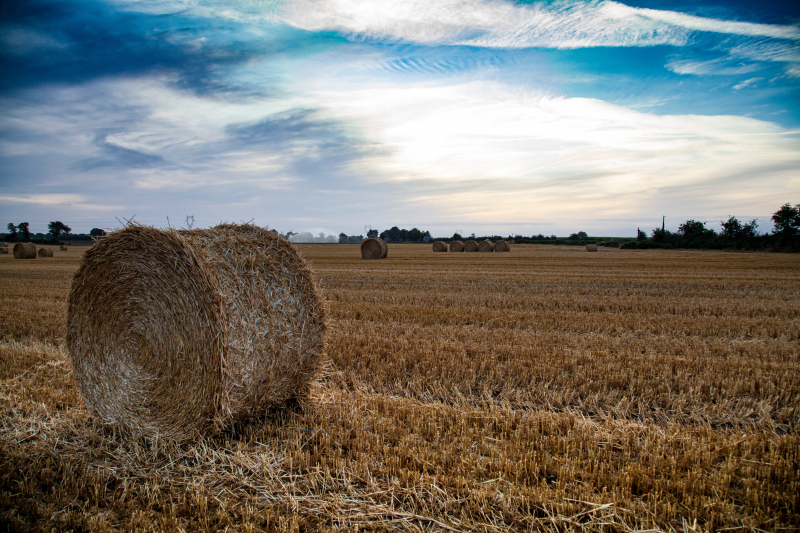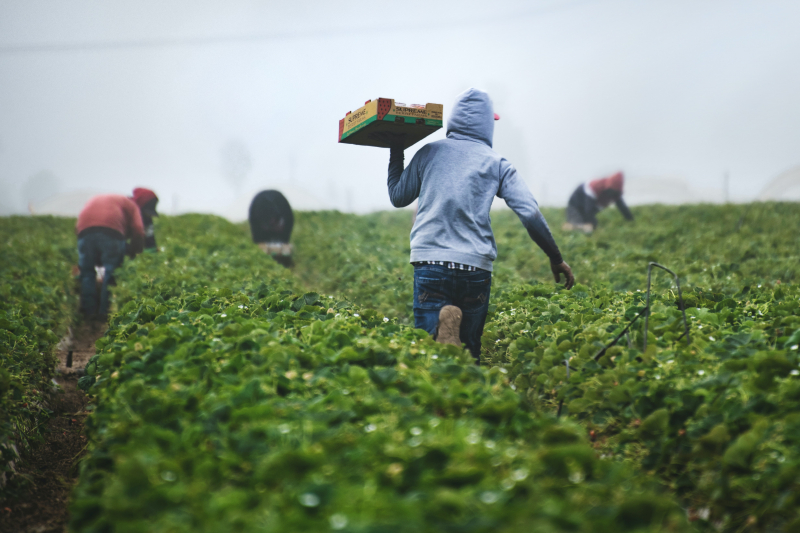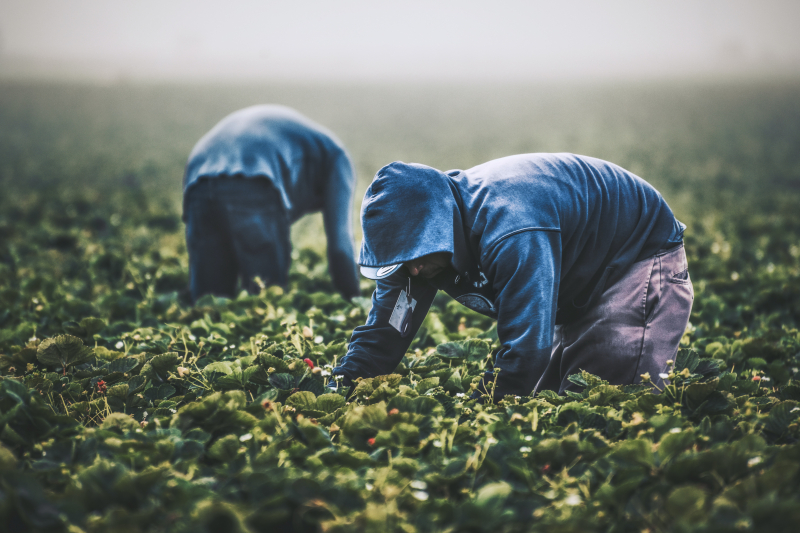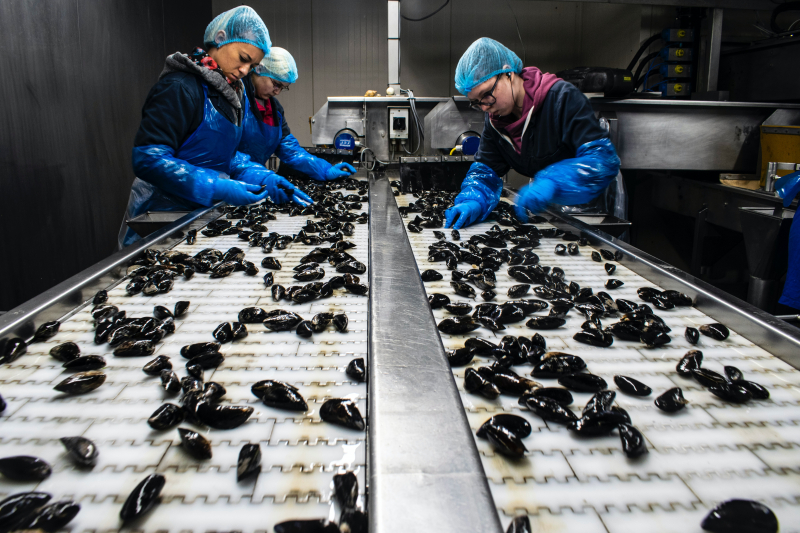Top 10 Reasons Why War in Ukraine is Causing Apocalyptic Famine
The war in Ukraine has been raging for several years, with both sides engaged in a fierce conflict that has led to the deaths of thousands of people. In ... read more...addition to the tragic loss of life, the war has also devastated the country's food production and distribution systems, leading to an apocalyptic famine threatening the lives of millions of Ukrainians.
-
The war in Ukraine has caused a huge disruption in the agricultural sector. Farmers have had to flee their homes and land, resulting in a labor shortage and huge disruption in agricultural production. The Ukrainian government estimates that around 4,000 agricultural production centers have been destroyed in the conflict, and the lack of infrastructure has made it difficult to transport food and other materials to the affected areas. This has led to an inability to meet the needs of the population, leading to an increase in poverty levels and food insecurity.
The disruption of agricultural production has caused a dramatic increase in food prices in Ukraine. This has caused further hardship for the people of Ukraine, as it has become increasingly difficult for them to afford basic necessities. This has resulted in a decrease in the population’s purchasing power and an increase in the number of people living in poverty.
The disruption in agricultural production is not only affecting the population of Ukraine, but it is also leading to an apocalyptic famine in the region. The famine in Ukraine has been described as “apocalyptic” by aid agencies, as it has become one of the worst in recent times. There is a lack of food and basic services, and the population faces a severe shortage of food and other supplies.

Eugene Triguba on Unsplash 
Oudi 44 on Unsplash -
Agriculture has long been a key sector of Ukraine's economy, and the country is known for its fertile soil and rich agricultural land. However, the war has led to the destruction of crops and fields, as well as the loss of livestock, tools, and machinery. The damage to agricultural infrastructure and equipment has been extensive, with farmers unable to access the resources they need to grow and harvest crops.
The destruction of infrastructure such as irrigation systems, roads, and bridges has also made it difficult for farmers to transport their products to market. This has further reduced the availability of food and contributed to the spread of hunger and malnutrition throughout the country.
The war has also had a significant impact on food processing and storage facilities. Many of these facilities have been destroyed or damaged, leaving farmers with no way to process, store, or transport their crops. This has led to significant losses of food and contributed to the overall decline in food availability in the country.
In addition to the destruction of crops and infrastructure, the war has also resulted in the displacement of millions of people, many of whom were farmers or farm workers. This has led to a significant reduction in the number of people available to work in agriculture and has further hampered food production in the country.
The combination of these factors has created an apocalyptic famine in Ukraine that is threatening the lives of millions of people. The United Nations estimates that over 10 million people in Ukraine are currently in need of humanitarian assistance, with many of them suffering from severe hunger and malnutrition.

Emerson Peters on Unsplash 
Matt Palmer on Unsplash -
The displacement of farmers and their families has been one of the largest factors in Ukraine's devastating famine. With their homes destroyed and fields laid to waste, many farmers have been unable to continue producing food, with an estimated 32,000 agricultural workers displaced since the conflict began. This has resulted in food shortages across the region, as the lack of farm labor has led to reduced crop yields.
The famine has been further exacerbated by the international sanctions imposed on Russia, as well as the ongoing conflict. The sanctions have made it difficult for farmers to secure the necessary supplies to produce food, while the conflict has prevented the Ukrainian government from effectively delivering much-needed aid. The result is a humanitarian crisis that has left millions needing food aid.
The situation in Ukraine is dire, and the international community must act to ensure that the Ukrainian people have access to the food and supplies they need. This will require a concerted effort from both the Ukrainian government and the international community, including the provision of aid and the easing of sanctions. It is also essential that the conflict is brought to an end in order to ensure that the conditions that have led to the famine are not allowed to continue.

Tim Mossholder on Unsplash 
Tim Mossholder on Unsplash -
The conflict in Ukraine has caused a dramatic disruption to the national economy and the agricultural sector in particular. The war has caused a severe shortage of inputs, such as fertilizers, pesticides and fuel, and the lack of resources has meant that the agricultural sector has been unable to recover from the crisis. As a result, food production in Ukraine has dropped by an estimated 20-30%, leading to an acute shortage of food. This has put a huge strain on the population and has intensified the famine.
At the same time, the war has caused mass displacement, with over 1.5 million people fleeing their homes. This further exacerbates the food crisis as it limits the access of displaced populations to food sources. The UN estimates that nearly 4 million people in Ukraine are in need of food assistance, and the situation is expected to become worse in the coming months.
The Ukrainian government has taken some steps to address the food crisis, such as providing food aid and subsidies, but these measures are clearly insufficient. The country needs a more comprehensive approach that addresses the root causes of the famine, such as the destruction of food production infrastructure.

Paul Einerhand on Unsplash 
Tim Mossholder on Unsplash -
The conflict in Ukraine has disrupted the country's food supply chain, leading to shortages of basic necessities such as bread, meat, and vegetables. The fighting has made it difficult for trucks to transport food to the parts of the country that need it most, with some areas under siege and cut off from the outside world. In addition, blockades and checkpoints have made it challenging for food to move from one region to another, further exacerbating the situation.
The destruction of infrastructure and equipment has also exacerbated the breakdown of food distribution systems. Many of the roads, bridges, and railways that were used to transport food have been destroyed in the conflict, making it even more challenging to get food to those in need. In addition, many of the warehouses and storage facilities used to store food have been destroyed or damaged, leading to spoilage and waste.
The breakdown of the banking and financial systems in Ukraine has also had a significant impact on food distribution. The war has made it difficult for people to access their bank accounts, leaving many without the necessary funds to purchase food. In addition, the devaluation of the Ukrainian currency has made food more expensive, making it difficult for people to afford even when it is available.
The apocalyptic famine in Ukraine is a humanitarian crisis that requires urgent action. The international community must work together to provide humanitarian aid to those in need and to support efforts to restore the country's food distribution systems. This includes providing funding for food distribution, repairing infrastructure, and improving transportation networks. In addition, efforts must be made to stabilize the banking and financial systems to ensure that people have access to the funds they need to purchase food.

Ismael Paramo on Unsplash 
Melanie Lim on Unsplash -
One of the main reasons why the war in Ukraine is causing apocalyptic famine is the disruption of food transportation. The conflict has led to the destruction of infrastructure, including roads, bridges, and railways, making it difficult to transport food and supplies to areas in need. The blockades and fighting have also led to the closure of many markets and supply routes, further exacerbating the food insecurity.
The situation has been made worse by the COVID-19 pandemic, which has disrupted supply chains and reduced the availability of food in many areas. The pandemic has also led to a decline in the purchasing power of many households, making it more difficult for them to access food.
The impact of the famine has been devastating, with many people facing severe malnutrition and starvation. According to the World Food Programme, over 3.4 million people in eastern Ukraine are food insecure, with over 1 million of them in urgent need of assistance. Children and the elderly are particularly vulnerable to malnutrition, and the situation is likely to worsen if urgent action is not taken.
The international community has been providing aid to Ukraine, but more needs to be done to address the root causes of the famine. The warring parties need to come together to negotiate a ceasefire and a peaceful resolution to the conflict. The international community also needs to provide support for the reconstruction of infrastructure and the restoration of supply chains. This will help to ensure that food and supplies can reach the affected areas and prevent a further deterioration of the situation.

Maxim Tolchinskiy on Unsplash 
Cem Sagisman on Unsplash -
The war has also led to a devaluation of Ukraine's currency, the hryvnia. As a result, many people have seen the value of their savings and income plummet, leaving them unable to afford even the most basic goods and services. This has made it difficult for people to buy food, fuel, and other essential items, further exacerbating the famine.
The conflict has also led to a lack of investment in Ukraine's economy. With the country in a state of constant turmoil, many businesses have been forced to shut down, and foreign investment has dried up. This has further weakened the country's financial system and made it difficult for people to find work and earn a living.
The breakdown of Ukraine's banking and financial systems has also made it difficult for humanitarian organizations to provide aid to those in need. Many aid organizations rely on the banking system to transfer funds and provide assistance, but the conflict has made this process difficult and often impossible.
The conflict has disrupted the normal functioning of the country's economy, leaving many people without access to basic necessities such as food and water. The devaluation of the hryvnia, the lack of investment in the economy, and the difficulties faced by humanitarian organizations have all contributed to the crisis. It is imperative that the international community works to address these issues and provide assistance to those in need to prevent further suffering and loss of life.

Eduardo Soares on Unsplash 
Jonathan Cooper on Unsplash -
The situation in Ukraine is dire and getting worse day by day. This famine is the result of a complex mix of political and economic interests at play. On the one hand, the war has created a disruption in the economic system of Ukraine, leading to high inflation and a lack of basic necessities. The intense fighting has also led to a collapse of the country’s infrastructure, leaving many without access to clean water, good sanitation, and adequate food supplies. As a result, many Ukrainians are now living in extreme poverty and hunger.
The political interests at play in the war are also contributing to the famine. After the Ukrainian revolution of 2014, the Russian-backed separatists have gained control of parts of the country, making the government unable to supply basic services to its citizens. As a result, those living in the separatist-controlled areas are facing a severe food shortage.
At the same time, the Ukrainian government seems to be unable to reclaim these territories and restore order. The government has been unable to get enough support from the international community, while also struggling with its own internal divisions. As a result, the war has dragged on, leaving millions of people in desperate need of food and other basic necessities.

Marga Santoso on Unsplash 
Priscilla Du Preez on Unsplash -
Ukraine has been experiencing severe weather events such as droughts, floods, and heatwaves, which have been exacerbated by climate change. These weather events have caused significant damage to crops, making it difficult for farmers to grow enough food to meet the needs of the population. In addition, the increasing frequency and intensity of extreme weather events have made it more challenging to plan and carry out agricultural activities.
The war has further exacerbated the effects of climate change in Ukraine. For instance, fighting has led to the destruction of infrastructure such as irrigation systems, water storage facilities, and agricultural equipment. This has made it even more challenging for farmers to adapt to changing weather patterns and produce enough food to feed the population.
Moreover, the conflict has led to an increase in pollution, which has further worsened the effects of climate change. The war has caused significant damage to industrial infrastructure, leading to the release of pollutants such as chemicals, heavy metals, and other hazardous materials into the environment. This pollution has contaminated water sources, soil, and crops, making it difficult for farmers to produce safe and healthy food.
The exacerbation of climate change effects in Ukraine has also impacted other areas of life. For instance, the increasing frequency and intensity of extreme weather events have made it difficult for people to carry out daily activities such as transportation and access to basic services. This has further compounded the humanitarian crisis caused by the war.

Markus Spiske on Unsplash 
Matt Palmer on Unsplash -
Water pollution has been a problem in Ukraine since the collapse of the Soviet Union in 1991. In the years following the fall of the Soviet Union, Ukraine's water infrastructure deteriorated due to a lack of maintenance. This led to a dramatic increase in the number of pollutants entering the country's rivers and lakes, leading to a significant decrease in water quality. The situation was further exacerbated by the ongoing conflict in eastern Ukraine, as both sides sought to gain control over important water sources.
The effects of water pollution in Ukraine have been dire. Poor water quality has led to a significant increase in water-borne diseases, with the World Health Organisation estimating that over 1 million Ukrainians are exposed to unsafe drinking water. The contamination of rivers and lakes has also led to a dramatic decline in fish populations, decimating the livelihoods of people who depend on the rivers and lakes for their income.
The situation in Ukraine is made worse by the fact that the conflict between Ukraine and Russia has led to a significant decrease in funding for environmental protection. Without proper funding, it is difficult to implement the necessary measures to reduce water pollution. As a result, the situation is only likely to worsen in the near future.

Tarek Badr on Unsplash 
Xianyu hao on Unsplash





























